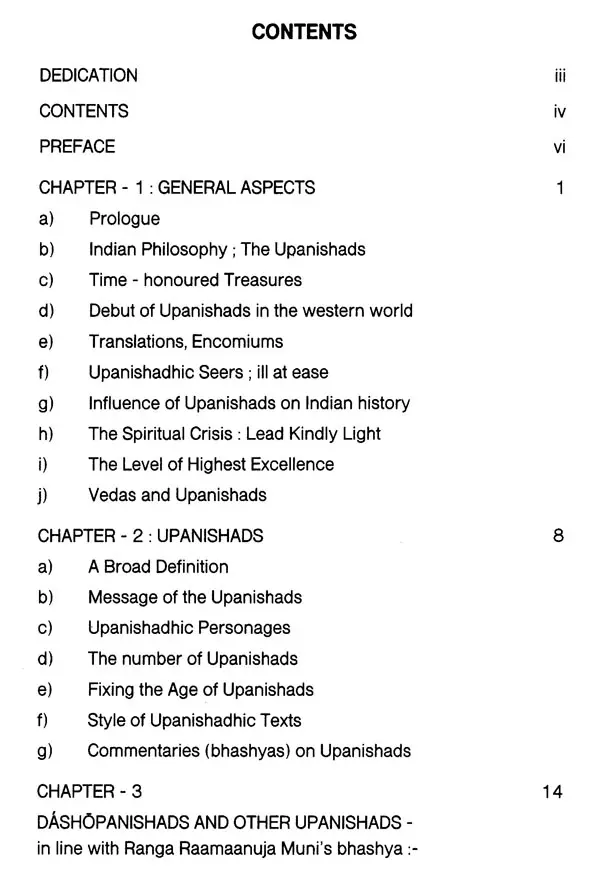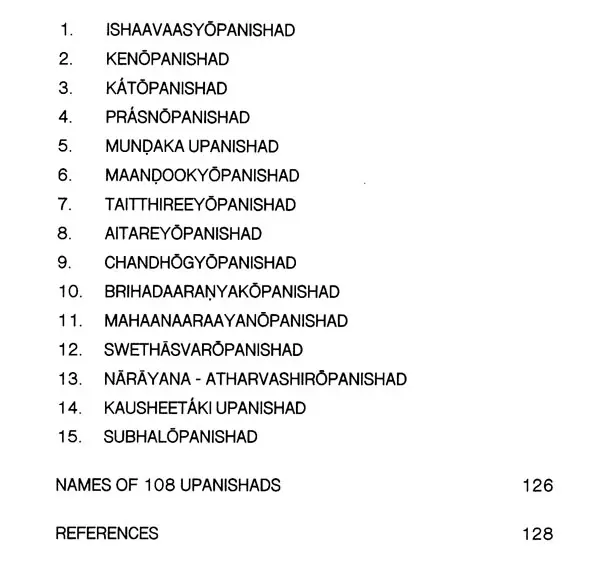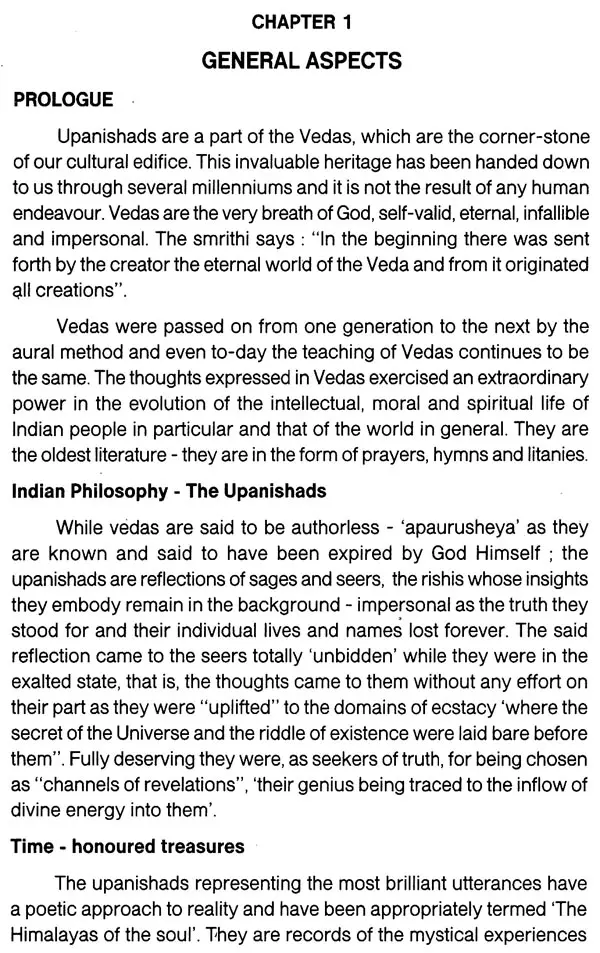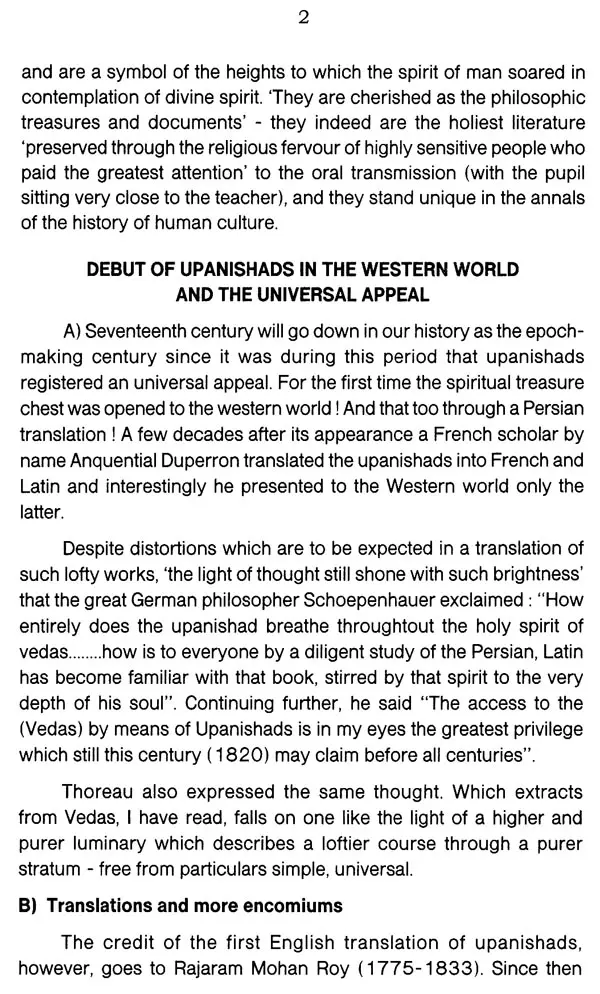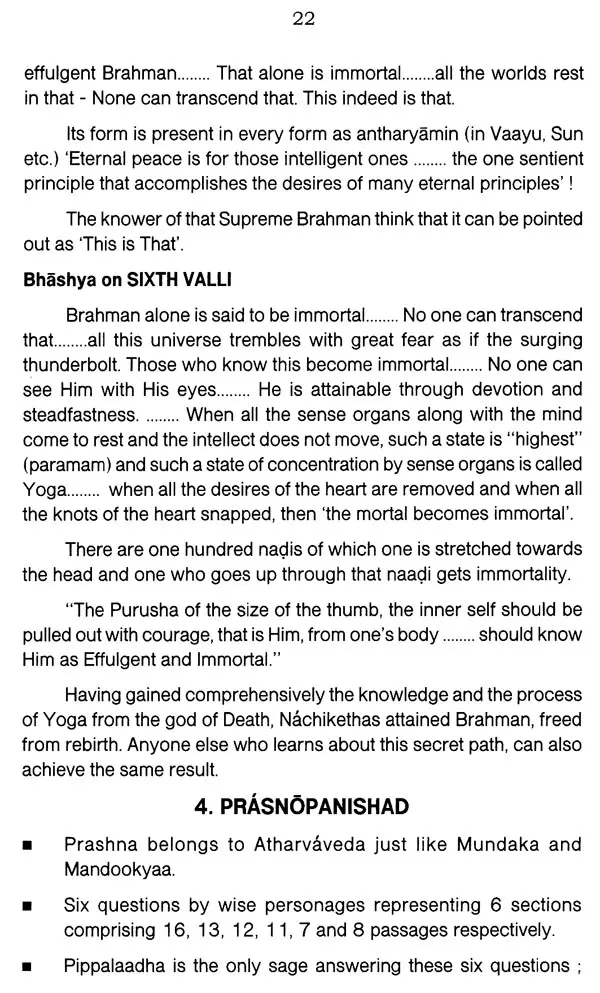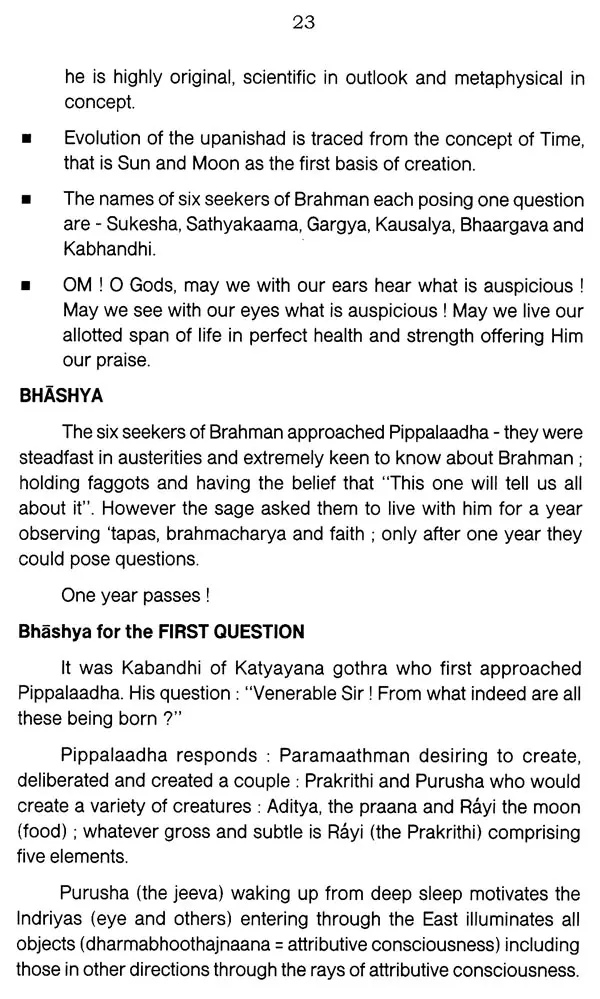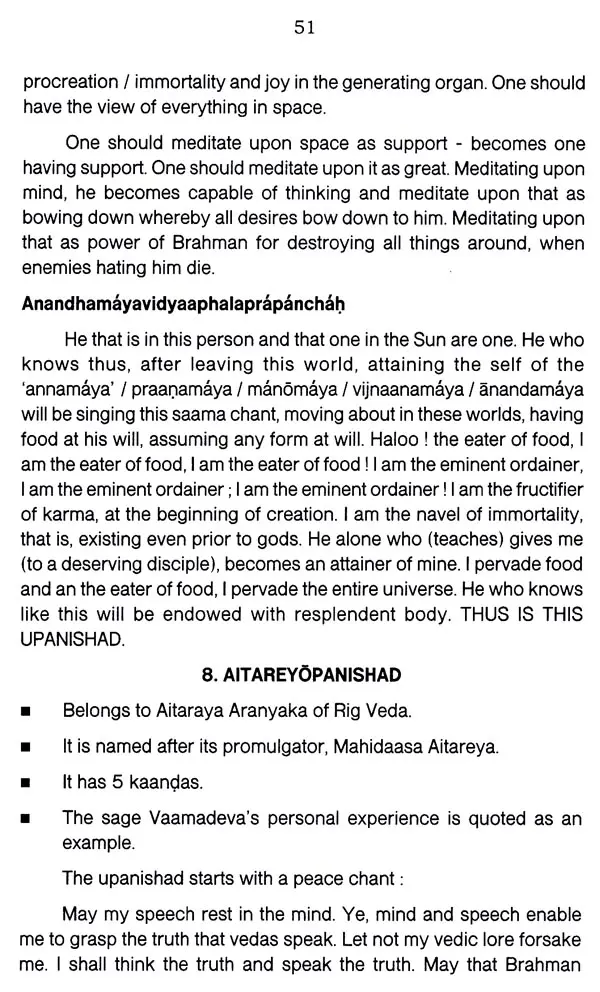
The Eternal Teachings from Upanishads
Book Specification
| Item Code: | UAY767 |
| Author: | K. R. Krishna Swami |
| Publisher: | A & K PRAKASHANA |
| Language: | English |
| Edition: | 2022 |
| Pages: | 135 |
| Cover: | PAPERBACK |
| Other Details | 8.50 X 5.50 inch |
| Weight | 160 gm |
Book Description
This is my third book on Upanishads. The first one titled "A General Introduction to Upanishads, with a special chapter - Raamaanuja on Upanishads" was sold out (1000 copies). The second one was on "Brihadaaranyaka Upanishad" based on Ranga Raamaanuja Muni's bhaashyam with a special chapter on Yajnavalkya. The present book, also based on Ranga Raamaanuja Muni's commentary is more broad-based, a sequel to my first book.
There is a well-meaning criticism from Vedanthic scholars from time to time that the majority of people are just not interested to familiarise themselves with our fundamental philosophy based on our time-honoured treasure, the Vedas, our greatest heritage. At the same time the question arises, are there conscious efforts to popularise and promote our Vedanthic philosophy in a manner intelligible to a large number of people? The answer is a clear 'no'. How many of us know that human birth is so precious that after undergoing a mind-boggling 8,400,000 lives of various types of species, human life comes into existence and that if one does not utilise this one-time opportunity to put an end to further births, one will slide back requiring millenniums to return to human life. Kenopanishad (2:5) puts just that succinctly: 'a havoc befalls those who do not make efforts to realise Brahman (the Lord) in this life itself (Mahathi Vinashtiḥ)'. 'May I never deny Brahman, may It never deny me' - the significance of this text needs to be understood.
It should be clearly recognised that upanishadhic seers were deeply concerned with human sufferings and rebirths, and have propounded ways for one to acquire overall wisdom and peace.
Although it was intended to cover dashopanishads, the book also comprises five other upanishads viz. Mahaanaaraayanopanishad, Kausheetiki upanishad, Swethasvataropanishad, Subalopanishad and Narayana Atharva Shirshopanishad on account of these having been utilised by Raamaanuja / referred to in Brahma Suthras.
**Contents and Sample Pages**

